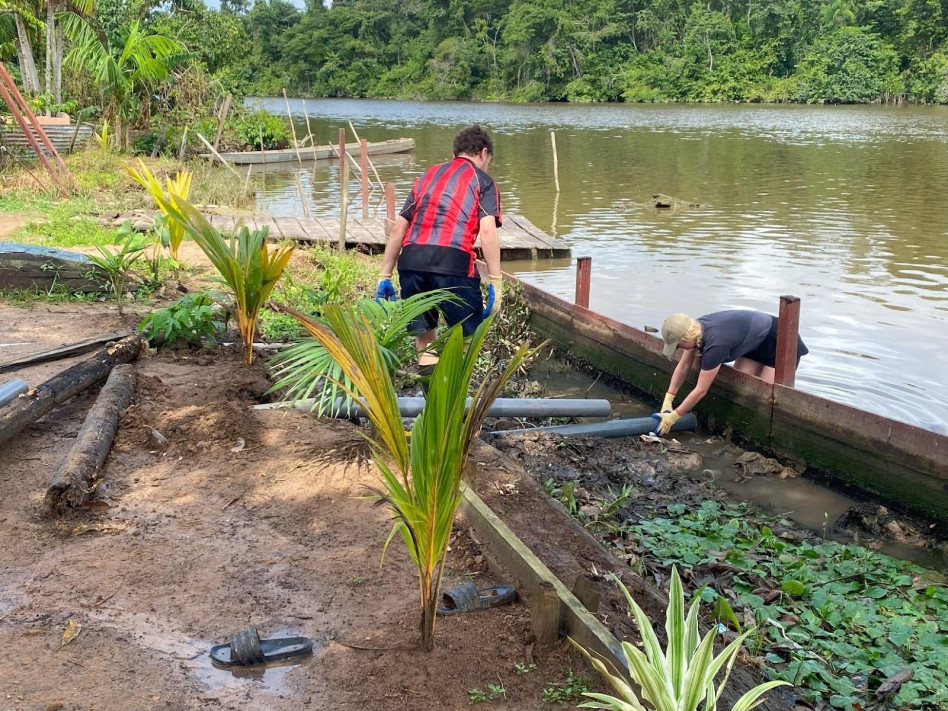With a group of 6 master's students from the Faculty of CiTg, we are researching bank and soil erosion in Ricanau Mofo, a small village on the Cottica River, just over 2 hours' drive from Paramaribo in Suriname.
Ricanau Mofo struggles with frequent flooding during the rainy season. The river water rises so high that the entire village is submerged. The village also faces significant erosion, both of the soil and the riverbank. Soil erosion is mainly caused by heavy tropical rain showers, resulting in strong currents in the clay-built village. Coastal erosion is mainly due to Ricanau Mofo's location in a bend of the Cottica River, resulting in increased water flow along the coast.
In September, a group came before us and constructed a retaining wall and planted mangrove trees to protect the riverbank. During our project, we are evaluating this retaining wall (does it perform its function well, how can it be improved) and examining the village's drainage during heavy rain showers. Additionally, we have an extra focus on waste management. We quickly realized that waste is one of the major problems for the villagers, so a part of our group is also tackling this issue.
During the evaluation of the retaining wall, we discovered that the villagers particularly appreciate one function of the retaining wall: it prevents waste from entering the river! This led us to realize that more awareness needs to be created among villagers about how they dispose of their waste.
To gather more input for our project, we have also been in contact with educational institutions and an engineering firm. In Paramaribo, we held a brainstorming session with students from the Anton de Kom University.
Thanks to S4S, we have already been able to implement some things. We have made improvements to the retaining wall (some planks were broken) and extended two sewer pipes that were causing dirt to accumulate between the retaining wall and the riverbank. Together with a villager, we also planted palms behind the retaining wall.
For the waste problem, a local welder is constructing a large waste bin where garbage bags can be collected, making it easier for garbage collectors to pick up the waste. This not only makes waste collection easier and more careful, but also provides a central point for people to dispose of their waste, preventing it from ending up on the streets.

